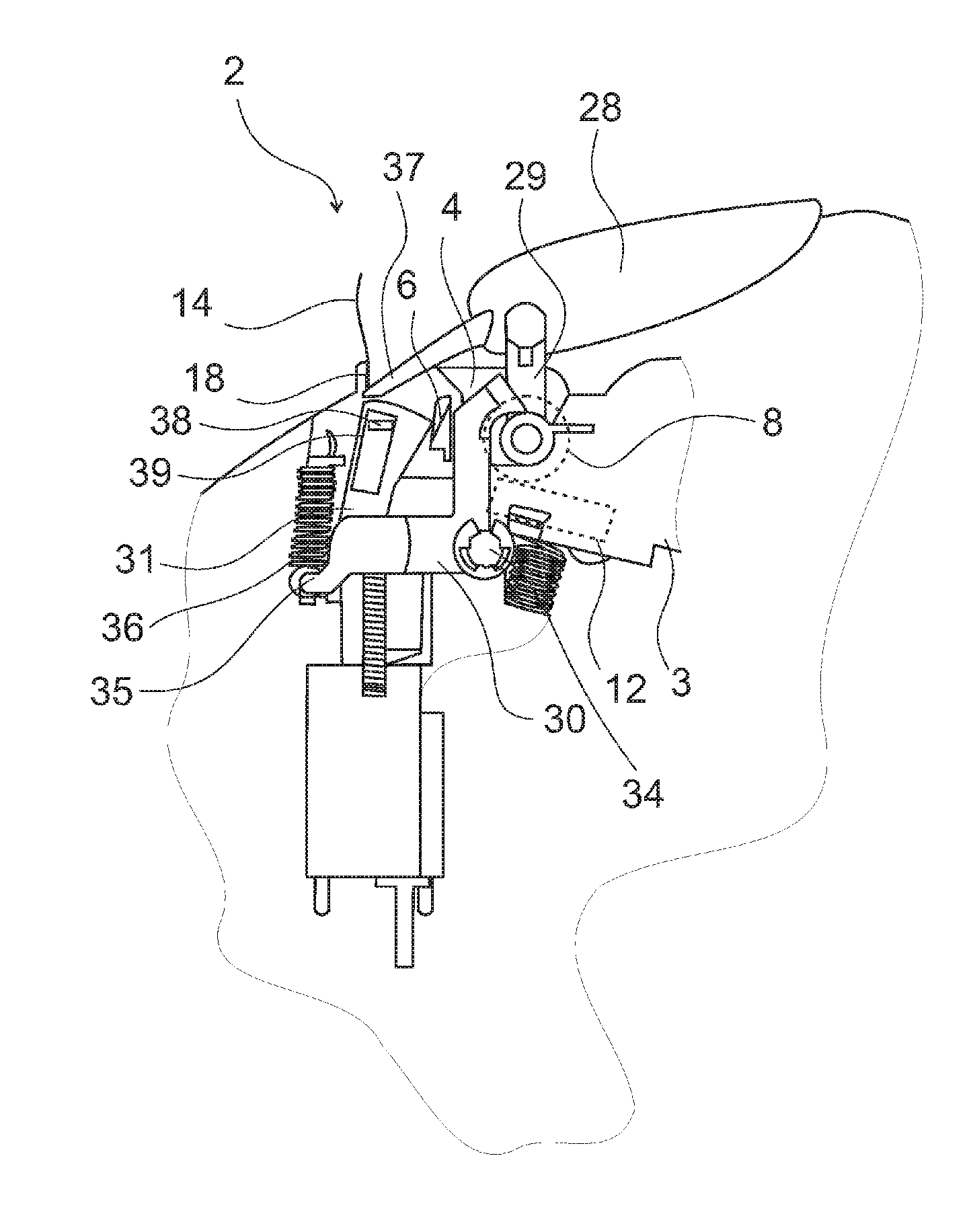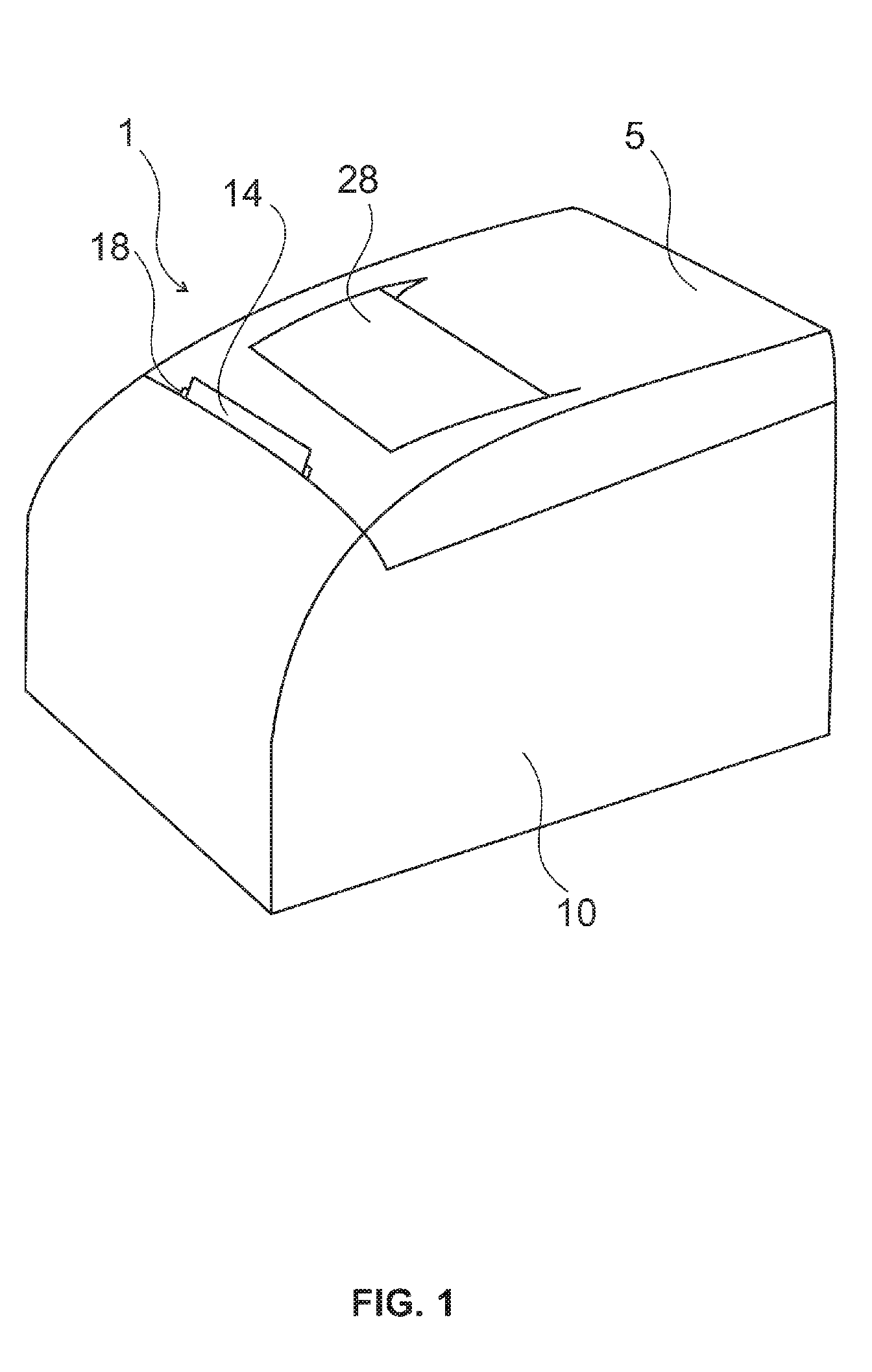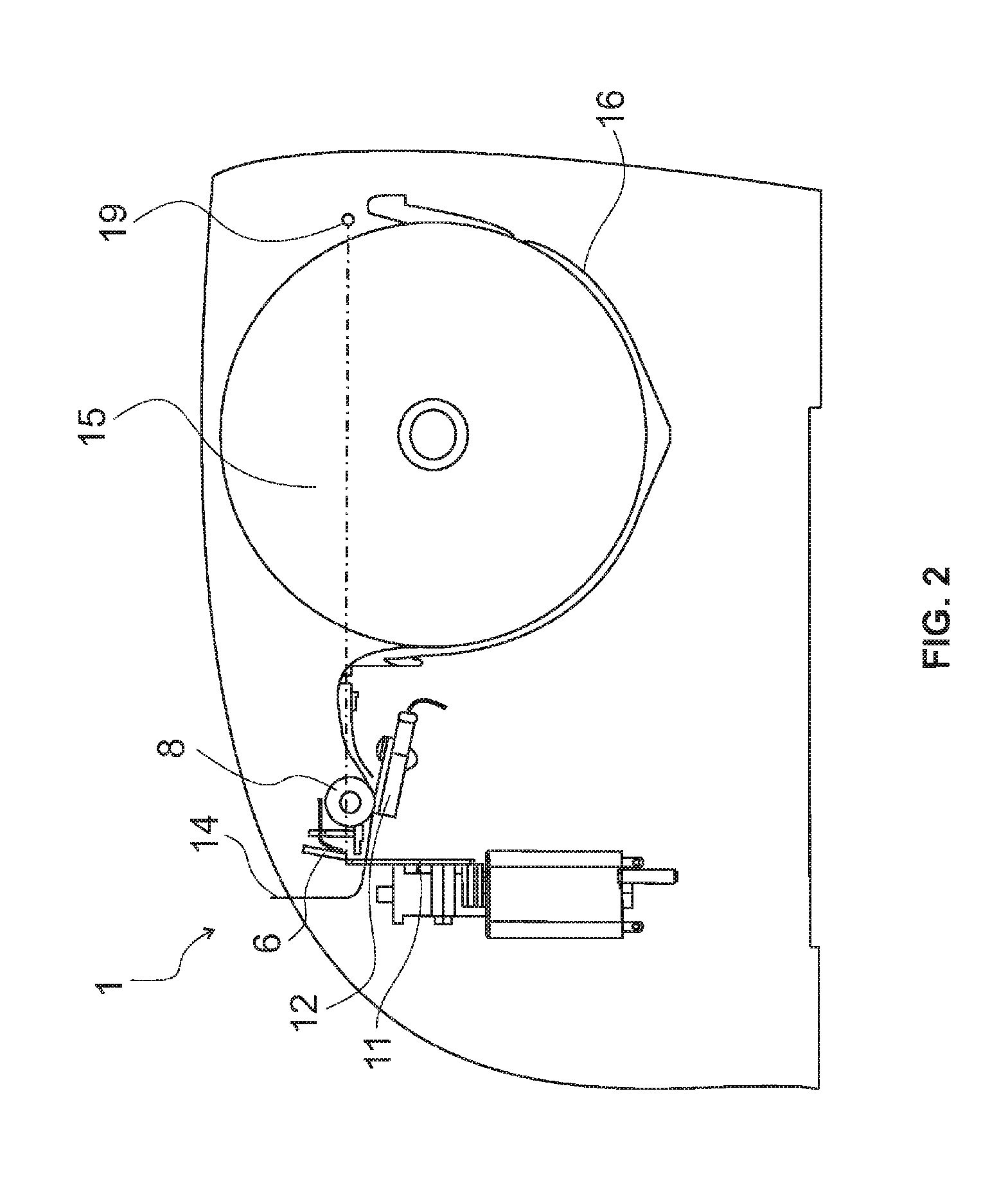Thermal printer
a printer and thermal technology, applied in the field of selective printing mechanisms, can solve the problems of conventional mechanisms, inability to print high-speed, noisy matrix printers, etc., and achieve the effects of reducing the probability of damage, facilitating the use of printers, and high availability
- Summary
- Abstract
- Description
- Claims
- Application Information
AI Technical Summary
Benefits of technology
Problems solved by technology
Method used
Image
Examples
Embodiment Construction
[0068]The several execution modes of the present invention are not limited to constructive details disclosed on this description and figures, as the present invention may be performed by other equivalent embodiments. According to the referred figures, the present invention refers to a thermal printer (1) with thermal printer opening mechanism (2) in two chassis, hereinafter mentioned as first chassis (3) and second chassis (4). Second chassis (4) is preferably positioned on printer cover (5), having the fixed blade (6) from cutting mechanism (7) and platen roller (8) from thermal printing mechanism (9) positioned on it, whereas first chassis (3) is preferably fixed to printer body (10) having movable blade (11) from cutting mechanism (7) and thermal head (12) from thermal printing mechanism (9) positioned on it.
[0069]In order to provide necessary locking of cover during printing and easy opening during operations such replacing paper roll, the opening mechanism (2) disclosed further...
PUM
 Login to View More
Login to View More Abstract
Description
Claims
Application Information
 Login to View More
Login to View More - R&D
- Intellectual Property
- Life Sciences
- Materials
- Tech Scout
- Unparalleled Data Quality
- Higher Quality Content
- 60% Fewer Hallucinations
Browse by: Latest US Patents, China's latest patents, Technical Efficacy Thesaurus, Application Domain, Technology Topic, Popular Technical Reports.
© 2025 PatSnap. All rights reserved.Legal|Privacy policy|Modern Slavery Act Transparency Statement|Sitemap|About US| Contact US: help@patsnap.com



